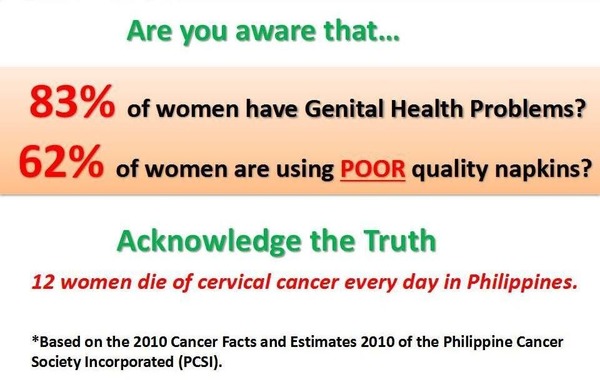
Because the Food and Drug Administration (FDA) classifies menstrual products like tampons and pads as medical devices, there is currently no legal requirement for manufacturers to disclose the ingredients used in these products. As a result, women rarely have access to a full list of ingredients.
On average, a woman will use between 12,000 and 16,000 tampons in her lifetime. Millions of women use tampons and pads on a monthly basis. Yet companies are not required to tell you what goes into products that come into contact with one of the most sensitive and absorptive parts of the body.
Due to the lack of transparency is a big deal. The ingredients in tampons and pads can have very real adverse health impacts. Fragrances, lubricants, lotions, odor-absorbing compounds and even antibacterial compounds may be added to menstrual products by manufacturers.
Certain chemicals that can be found in these additives are linked to allergies, irritation, cancer, endocrine disruption and birth defects. In fact, the Food and Drug Administration has received hundreds of reports of adverse reactions in recent years about reactions to pads and tampons that have required medical evaluation and care.
You have a right to know what’s in your tampons and pads, just as you have a right to know what’s in your food, shampoo, deodorant or mouthwash.
Ingredient disclosure for feminine care products is necessary in providing women the information they need to make educated choices when it comes to their reproductive health. And Congresswoman Grace Meng (D-N.Y.) agrees. Rep. Meng’s new bill, the Menstrual Hygiene Product Right to Know Act of 2017 (H.R. 2416), requires menstrual hygiene products that are classified as medical devices to have their ingredients listed on the packaging.
Forward-thinking companies are already doing the right thing for women by voluntarily disclosing the ingredients used in their products, but we need complete, universal and full ingredient transparency.
Business leaders, including Seventh Generation, are taking the extra step to advocate for transparency industry-wide by joining Women’s Voices for the Earth and some of the nation’s leading environmental and women’s health advocates on May 23, 2017 on Capitol Hill to show support for federal legislation aimed at closing serious gaps in feminine hygiene regulation.
We have come to expect ingredient disclosure in foods and cosmetics. We should expect no less from menstrual products, especially given the intimate nature of exposure to a woman’s body. This is a simple, common-sense law necessary to a woman’s health. We support Congresswoman Meng’s Menstrual Hygiene Product Right to Know Act, and urge every member of Congress to do the same. The Solution To Safer And Healthier Feminine Products Here
Source:http://thehill.com/blogs/pundits-blog/healthcare/333459-feminine-hygiene-products-can-be-dangerous-so-why-arent-they
